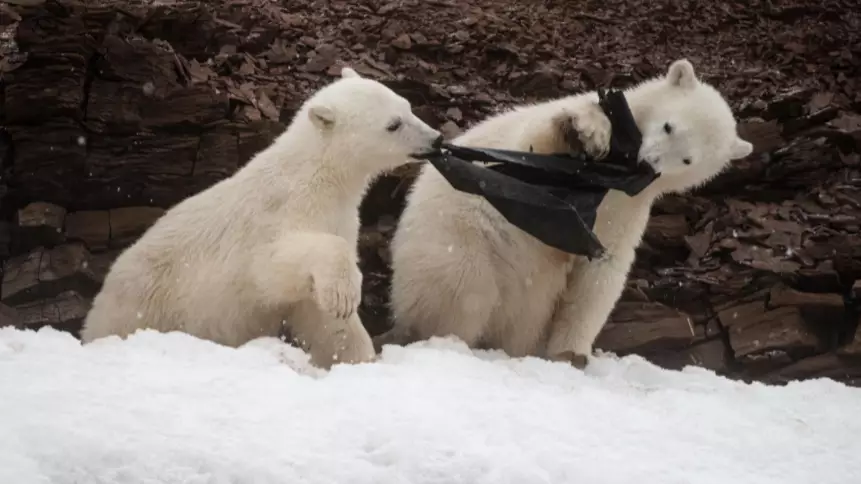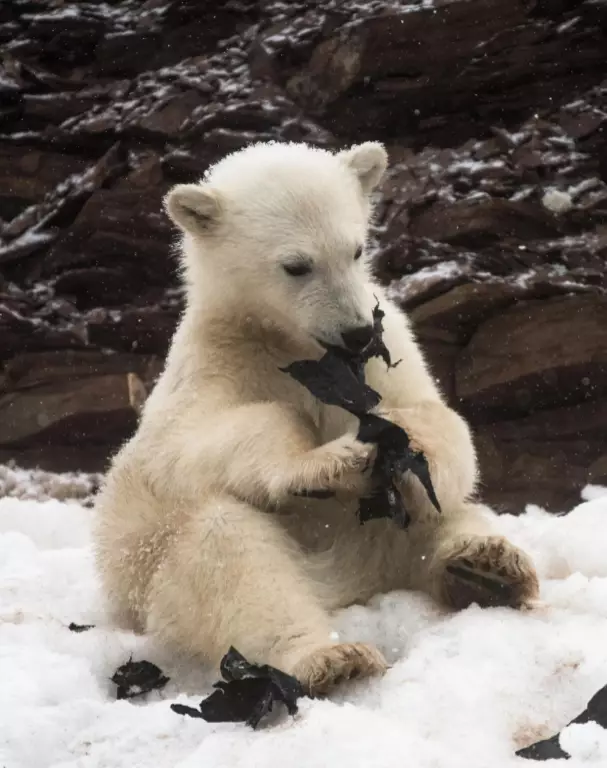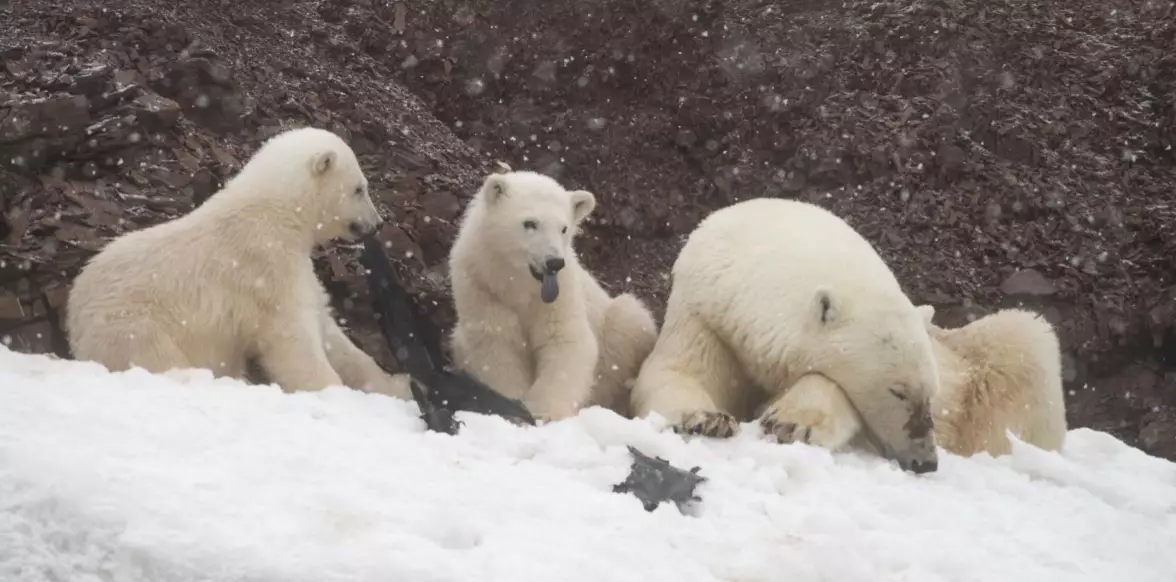
Heart-wrenching images show two polar bear cubs chewing on plastic in the Arctic.
Photos taken by Arctic expedition leader Jens Wikström show the pair of two-year-old siblings having a game of tug-of-war with a black plastic bag, highlighting the ongoing problem of plastic pollution.
Another shot shows one of the bears sitting and eating the plastic.
Advert

Wikström was at Lifdefjorden, Svalbard, Norway, when he saw the polar bears and whipped out his camera to capture the grim photos.
Wikström, 30, said the bears played around with and chewed on the plastic for around 15 minutes, while he watched on horrified from around 100ft away.
Advert
He said: "Sights like this are devastating. It's no secret we have a lot of pollution, but I was processing in real time what happens to our ecosystem when we don't take care of our s***. It ends up in the bellies of these animals.
"The kiddos went to the shoreline and dug up the snow to find this regular plastic bag. They started to rip it apart as a toy and ate a good chunk of it. They play with anything they can possibly get their hands on.
"On these remote islands of the Arctic, I've seen young curious bears and Arctic foxes and eating the plastic pollution that often drifts ashore with the currents from the Arctic Ocean Northeast of Svalbard or with the Gulf Stream that come up from Europe.

"I just hope people will think twice before leaving plastic bags or cigarette butts on the ground, you never know where it will end up.
Advert
"It is also concerning that microplastics are affecting the food chain of fish and seals, so plastic is already getting into the polar bear's diet. And when it gets into the diet it can affect the milk of the mother as well."
The polar bears in this area are coping well, despite climate change and the dangers of plastic pollution, and appear to be well fed.
According to population surveys from 2017 there was thought to only be 250 bears that roam the costal region around Svalbard.
Featured Image Credit: Media Drum World/Jens WikströmTopics: Environment, World News, Animals